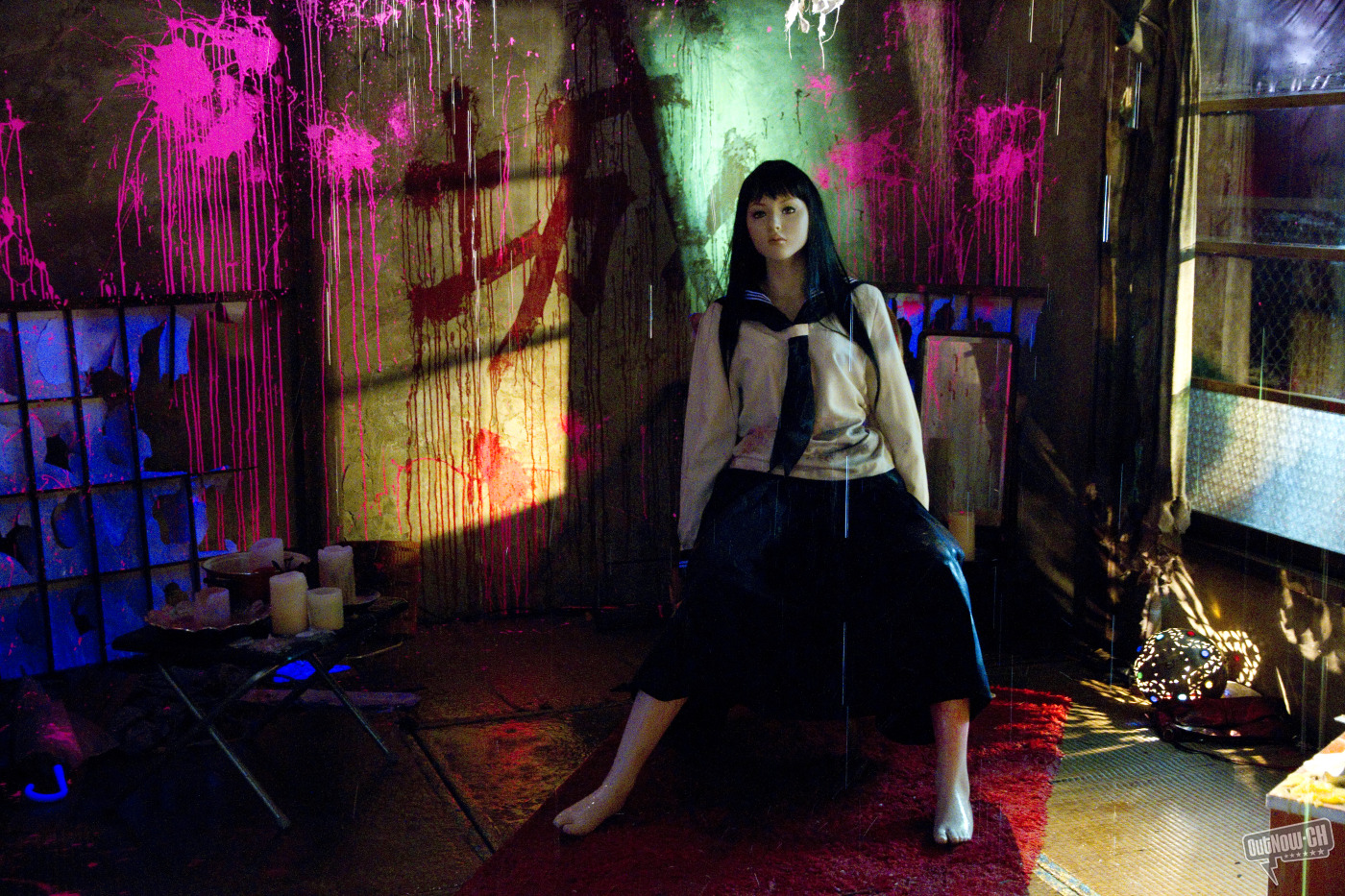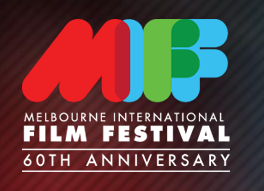 The weekends at the major film festivals may attract more casual filmgoers, but they also separate the wheat from the chaff with the challenging temptations to try and see everything that one possibly can in a short space of time. Despite the fact that a 30-something film stand damn near killed this reviewer at the Sydney Film Festival, a short stay in Melbourne necessitated a 5-film day on a windy and wet Saturday. Not for nothing either: Day 9 of the 60th Melbourne International Film Festival was filled with a ton of sold-out sessions, and a few highly-anticipated festivals favourites.
The weekends at the major film festivals may attract more casual filmgoers, but they also separate the wheat from the chaff with the challenging temptations to try and see everything that one possibly can in a short space of time. Despite the fact that a 30-something film stand damn near killed this reviewer at the Sydney Film Festival, a short stay in Melbourne necessitated a 5-film day on a windy and wet Saturday. Not for nothing either: Day 9 of the 60th Melbourne International Film Festival was filled with a ton of sold-out sessions, and a few highly-anticipated festivals favourites.
Beginners director Mike Mills was about for a conversation, and the Melbourne premiere of Ivan Sen’s Toomelah came to town. Cannes Grand Prix winning The Kid with a Bike divided audiences, while Australia’s Red Dog sent them looking to buy a kelpie. Similarly divisive were She Monkey and Hanezu, the latter causing a number of walkouts, but not as many as the endurance test of Sion Sono’s Guilty of Romance, which kicked off at 11:30 PM with more sex than you could poke a proverbial at.
Jiro Dreams of Sushi
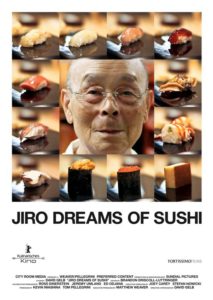 Following the titular 85-year-old Jiro Ono, owner of the 3 Michelin star sushi restaurant where prices start at $300 a plate, director David Gelb gives us an inspiring tale that quite literally spans the best part of the last century. Working as a sushi chef for over 75 years, Jiro’s story is as moving and jaw-slackening as the one in the similarly themed Bill Cunningham New York. Beneath the surface of the perfect food porn of Jiro Dreams of Sushi, there is a complex tale of a man that has been working in the industry since he left home at the age of 9. Seemingly unwilling to retire yet in his own personal quest for perfection, with his 50-year-old son still working as his “apprentice”, the maestro speaks of dreaming of new ideas for sushi. Gelb nevers goes terribly deep with his subject and he, like many of the industry partners that have worked with Jiro, rarely have anything other than positive comments. Yet we get the impression of a man who has sacrificed much to get where he is, and a further probe of his two sons (one of whom has opened his own branch of Jiro’s famous store) may have served to flesh out the often straightforward documentary. Yet this is a capsule in time and a message to all artists: if you aren’t giving your all to your chosen craft, you aren’t doing it right.
Following the titular 85-year-old Jiro Ono, owner of the 3 Michelin star sushi restaurant where prices start at $300 a plate, director David Gelb gives us an inspiring tale that quite literally spans the best part of the last century. Working as a sushi chef for over 75 years, Jiro’s story is as moving and jaw-slackening as the one in the similarly themed Bill Cunningham New York. Beneath the surface of the perfect food porn of Jiro Dreams of Sushi, there is a complex tale of a man that has been working in the industry since he left home at the age of 9. Seemingly unwilling to retire yet in his own personal quest for perfection, with his 50-year-old son still working as his “apprentice”, the maestro speaks of dreaming of new ideas for sushi. Gelb nevers goes terribly deep with his subject and he, like many of the industry partners that have worked with Jiro, rarely have anything other than positive comments. Yet we get the impression of a man who has sacrificed much to get where he is, and a further probe of his two sons (one of whom has opened his own branch of Jiro’s famous store) may have served to flesh out the often straightforward documentary. Yet this is a capsule in time and a message to all artists: if you aren’t giving your all to your chosen craft, you aren’t doing it right.
[stextbox id=”custom” caption=”The Reel Bits”]Jiro Dreams of Sushi is as well constructed as the titular food on display, and an inspirational glimpse into a level of skill few will ever achieve. [/stextbox]
Jiro Dreams of Sushi is due for a late 2011 release in Australia from Curious.
Hanezu
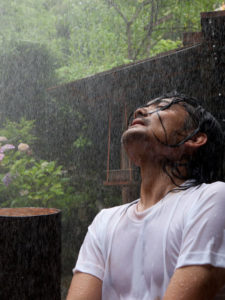 Director Naomi Kawase was the youngest winner of the Camera D’Or in 1997 for Moe no Suzaku, and her latest film also debuted at Cannes in competition this year and continues to push the boundaries of storytelling. Framed by the mythical tale of the three mountains inhabited by the gods, Mt. Unebi, Mr. Miminashi and Mt. Kagu, Hanezu (朱花の月) is a tale set in contemporary rural Japan where Kayo (Hako Oshima, Heaven’s Story) lives with editor/horticulturalist Tetsuo (Tetsuya Akikawa) while having an affair with woodcutter Takumi (Tohta Komizu). Hanezu is often a difficult film to watch, striving as it does for metaphor with a little too much effort, and its time-shifting often creates a confused narrative. Yet it is an undeniably beautiful shot, using handheld camera with more grace than the majority of filmmakers. The locations around Nara were used to great effect, and the actors actually lived in the region for a time before the shooting commenced to develop their characters. As a result, their performances – largely shot in single takes – are natural and tied to their environment. Kawase resurrections the ancient word Hanezu, meaning “red”, as a recognition of the colour being the first that humans recognise, along with the duality of its association with blood, flame and the sun and the fragility of a colour that fades rapidly.
Director Naomi Kawase was the youngest winner of the Camera D’Or in 1997 for Moe no Suzaku, and her latest film also debuted at Cannes in competition this year and continues to push the boundaries of storytelling. Framed by the mythical tale of the three mountains inhabited by the gods, Mt. Unebi, Mr. Miminashi and Mt. Kagu, Hanezu (朱花の月) is a tale set in contemporary rural Japan where Kayo (Hako Oshima, Heaven’s Story) lives with editor/horticulturalist Tetsuo (Tetsuya Akikawa) while having an affair with woodcutter Takumi (Tohta Komizu). Hanezu is often a difficult film to watch, striving as it does for metaphor with a little too much effort, and its time-shifting often creates a confused narrative. Yet it is an undeniably beautiful shot, using handheld camera with more grace than the majority of filmmakers. The locations around Nara were used to great effect, and the actors actually lived in the region for a time before the shooting commenced to develop their characters. As a result, their performances – largely shot in single takes – are natural and tied to their environment. Kawase resurrections the ancient word Hanezu, meaning “red”, as a recognition of the colour being the first that humans recognise, along with the duality of its association with blood, flame and the sun and the fragility of a colour that fades rapidly.
[stextbox id=”custom” caption=”The Reel Bits”]Hanezu is a beautiful and haunting poem to a three way love story, musing on nature, love and existence.[/stextbox]
Hanezu does not currently have an Australian release date.
Autoluminescent: Roland S. Howard
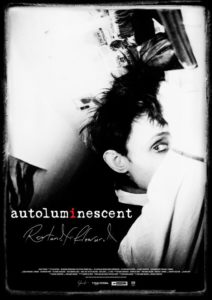 When Roland S. Howard passed away in late 2009, the music industry the world over mourned the loss a pivotal figure in not only the post-punk scene, but in rock music of the last three decades. The name not be instantly familiar to all audiences, but his bands The Boys Next Door, The Birthday Party and These Immortal Souls (to name a few) have produced some of the most influential music of its time. Autoluminescent acts a companion piece to director Richard Lowenstein’s earlier We’re Livin’ On Dog Food documentary, a portrait of the Melbourne post-punk scene, and his 1986 semi-factual feature film Dogs in Space. Yet it is primarily a document dedicated to Howard himself, written not only by Lowenstein but by those who worked with him, knew him and loved him. From Nick Cave, whose cover of Howard’s “Shivers” is perhaps the best known of the subject’s works, Lydia Lunch, Sonic Youth’s Thurston Moore, Henry Rollins and Wim Wenders (who gave Howard’s Crime and the City Solution featured billing in his portrait of Berlin, Wings of Desire), Lowenstein’s documentary doesn’t simply but summarise Howard’s career but quantifies the impact of it.
When Roland S. Howard passed away in late 2009, the music industry the world over mourned the loss a pivotal figure in not only the post-punk scene, but in rock music of the last three decades. The name not be instantly familiar to all audiences, but his bands The Boys Next Door, The Birthday Party and These Immortal Souls (to name a few) have produced some of the most influential music of its time. Autoluminescent acts a companion piece to director Richard Lowenstein’s earlier We’re Livin’ On Dog Food documentary, a portrait of the Melbourne post-punk scene, and his 1986 semi-factual feature film Dogs in Space. Yet it is primarily a document dedicated to Howard himself, written not only by Lowenstein but by those who worked with him, knew him and loved him. From Nick Cave, whose cover of Howard’s “Shivers” is perhaps the best known of the subject’s works, Lydia Lunch, Sonic Youth’s Thurston Moore, Henry Rollins and Wim Wenders (who gave Howard’s Crime and the City Solution featured billing in his portrait of Berlin, Wings of Desire), Lowenstein’s documentary doesn’t simply but summarise Howard’s career but quantifies the impact of it.
[stextbox id=”custom” caption=”The Reel Bits”]Autoluminescent: Roland S. Howard serves not only as great companion to Lowenstein’s earlier work, but as a moving tribute to a man and a scene.[/stextbox]
Autoluminescent: Roland S. Howard does not currently have an Australia release date.
The Kid with a Bike
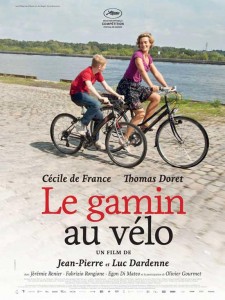 Belgian brothers Jean-Pierre and Luc Dardenne came to international attention in the mid-1990s with The Promise, before winning the Palme d’Or at the Cannes Film Festival twice for Rosetta and The Child. When their 2008 film Lorna’s Silence won best screenplay at Cannes it seemed they could do no wrong, and the success of The Kid with the Bike – winning the Grand Prix at this year’s Cannes Film Festival – has solidified that reputation. Yet with this latest effort, one may wonder what dirt the Dardenne brothers have on the Cannes organisers. If one can accept the flimsy premise of hairdresser Samantha (Cécile de France, Hereafter) taking in troubled youth Cyril (Thomas Doret) after a random encounter in a doctor’s office, her continued forgiveness of this brat of a relative stranger defies all logic. At the risk of sounding too curmudgeonly, Cyril’s principle problem is that he needs a good clip over the ear. Displaying repeated stupidity, including a refusal to accept his father’s lack of desire to be with him and falling in with “the wrong crowd”, the relationship between the principles meanders often, escalating occasionally in to moments of dramatic tension and/or violence. True to the title, the kid does have a bike, but what the film is trying to say beyond that remains agonisingly beyond care.
Belgian brothers Jean-Pierre and Luc Dardenne came to international attention in the mid-1990s with The Promise, before winning the Palme d’Or at the Cannes Film Festival twice for Rosetta and The Child. When their 2008 film Lorna’s Silence won best screenplay at Cannes it seemed they could do no wrong, and the success of The Kid with the Bike – winning the Grand Prix at this year’s Cannes Film Festival – has solidified that reputation. Yet with this latest effort, one may wonder what dirt the Dardenne brothers have on the Cannes organisers. If one can accept the flimsy premise of hairdresser Samantha (Cécile de France, Hereafter) taking in troubled youth Cyril (Thomas Doret) after a random encounter in a doctor’s office, her continued forgiveness of this brat of a relative stranger defies all logic. At the risk of sounding too curmudgeonly, Cyril’s principle problem is that he needs a good clip over the ear. Displaying repeated stupidity, including a refusal to accept his father’s lack of desire to be with him and falling in with “the wrong crowd”, the relationship between the principles meanders often, escalating occasionally in to moments of dramatic tension and/or violence. True to the title, the kid does have a bike, but what the film is trying to say beyond that remains agonisingly beyond care.
[stextbox id=”custom” caption=”The Reel Bits”]The Kid with a Bike is a frustrating and ultimately unfulfilling tale of Belgium’s dumbest child, that aims for uplifting until all the air is eventually let out of the tires[/stextbox]
The Kid with a Bike does not currently have an Australian release date.
Guilty of Romance
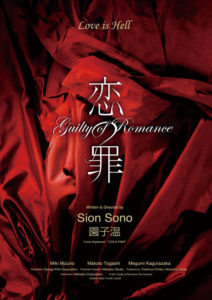 Avant garde filmmaker Sion Sono’s Cold Fish premiered earlier in the Festival, its misogyny and visceral brilliance divided audiences. Almost as if in direct response to this, Sono has released Guilty of Romance (恋の罪), a film that puts women in charge of the sex and violence, even if it may still be Sono indulging in liberal doses of both. Indeed, as the third chapter in the so-called “Hate” trilogy of films, that began with 2008’s Love Exposure, Guilty of Romance is very much the companion film – or more accurately, mirror image – of Cold Fish. When police detective Kazuko (Miki Mizuno, Castle Under Fiery Skies) uncovers a brutally murdered body at the love hotel district of Tokyo, she also uncovers a complex tale of eroticism and repression involving Izumi (Megumi Kagurazaka, Cold Fish), the restrained housewife of a famous novelist on the verge of sexual liberation, and Mitsuko (Makoto Togashi, A Symmetry), a university professor with daddy issues who leads a double-life as a street hooker.
Avant garde filmmaker Sion Sono’s Cold Fish premiered earlier in the Festival, its misogyny and visceral brilliance divided audiences. Almost as if in direct response to this, Sono has released Guilty of Romance (恋の罪), a film that puts women in charge of the sex and violence, even if it may still be Sono indulging in liberal doses of both. Indeed, as the third chapter in the so-called “Hate” trilogy of films, that began with 2008’s Love Exposure, Guilty of Romance is very much the companion film – or more accurately, mirror image – of Cold Fish. When police detective Kazuko (Miki Mizuno, Castle Under Fiery Skies) uncovers a brutally murdered body at the love hotel district of Tokyo, she also uncovers a complex tale of eroticism and repression involving Izumi (Megumi Kagurazaka, Cold Fish), the restrained housewife of a famous novelist on the verge of sexual liberation, and Mitsuko (Makoto Togashi, A Symmetry), a university professor with daddy issues who leads a double-life as a street hooker.
Fans of Sono will already be familiar with his over-the-top and brightly coloured view of the world, with bright pink paint being just one of the motifs throughout the film, and how these are used as a clever mask for getting to the root of the conflicting moral identities at the heart of Japan. The exploration of identity is the focal point of Guilty of Romance, with bare breasts a titillating metaphor for bare souls, and it is difficult to take some of the sex scenes terribly seriously when they have the focus of the Showgirls hottub scene. Yet Sono has an unmistakeable vision, and while we have managed to see this vision before, Guilty of Romance may be the more accessible version that audiences need to crack into his always fascinating world.
[stextbox id=”custom” caption=”The Reel Bits”]Despite massive amounts of sex and chaos, a more restrained, albeit unmistakably powerful, effort from Sono. [/stextbox]
Guilty of Romance does not currently have an Australian release date.
The Melbourne International Film Festival continues until August 7, 2011.
For more news and reviews from the Melbourne International Film Festival, keep checking The Reel Bits over the next two weeks.
Richard can be found on Twitter@DVDBits. The Reel Bits is also @The_ReelBits

